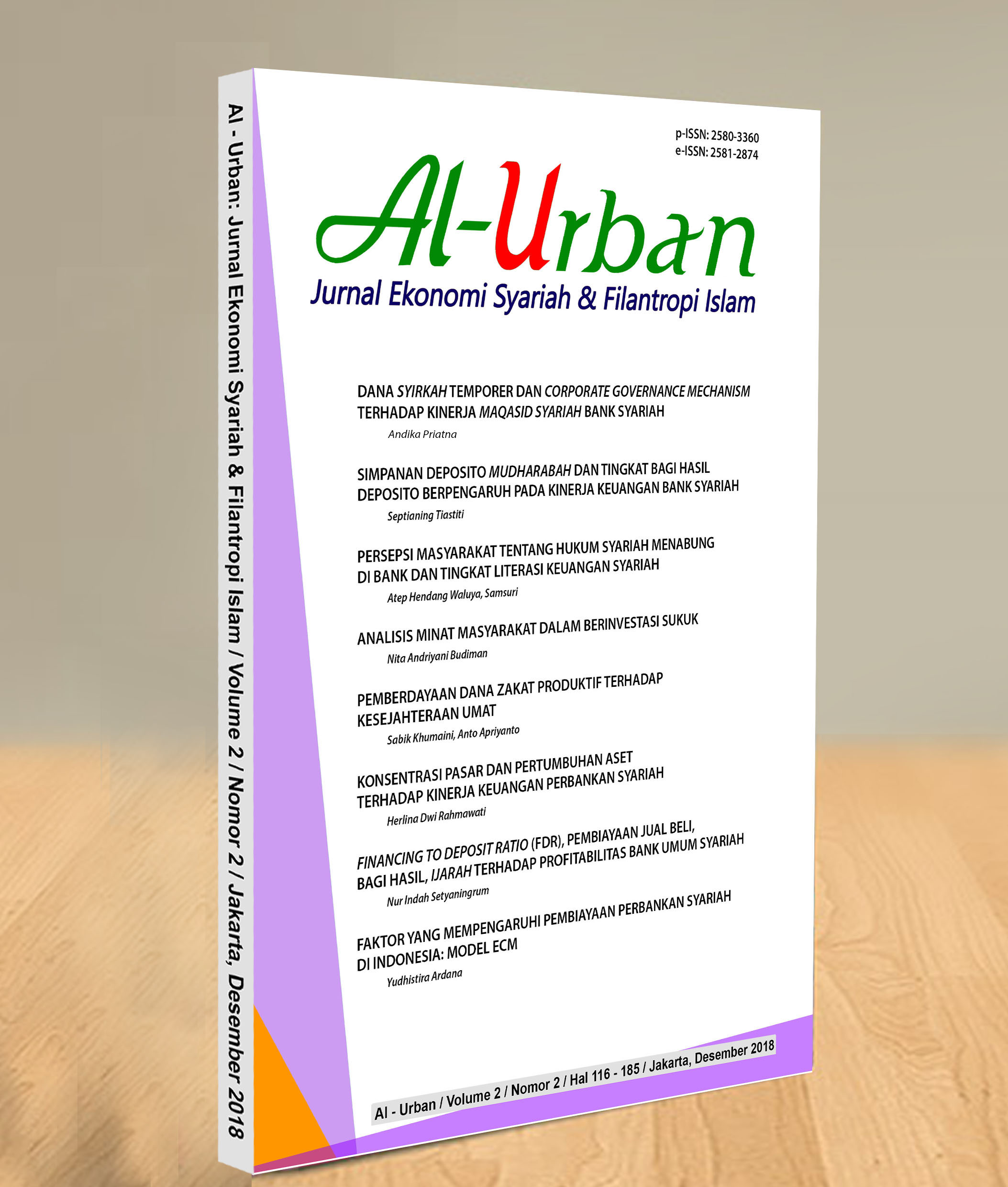Kolaborasi Antara Ekonomi Hijau dan Ekonomi Islam dalam Mencapai Kesejahteraan Sosial dan Lingkungan: Analisis Terhadap Strategi Pembangunan Berkelanjutan Society 5.0
DOI:
https://doi.org/10.22236/alurban_vol8.i1/17434Keywords:
Ekonomi Hijau, Ekonomi Islam, Kesejahteraan Sosial, Pembangunan Berkelanjutan, Society 5.0Abstract
This study aims to analyze the collaboration between green economy and Islamic economy in achieving social and environmental welfare through sustainable development strategies within the context of Society 5.0. The green economy, which emphasizes sustainable management of natural resources and environmental friendliness, can strengthen the principles of Islamic economy focused on social justice, environmental balance, and equitable wealth distribution. The integration of these two concepts is expected to create an inclusive and sustainable economic system that supports the achievement of Sustainable Development Goals (SDGs). However, its implementation requires policies that accommodate the social, cultural, and political conditions of each country. This study concludes that the collaboration between green economy and Islamic economy offers great potential for creating holistic social and environmental welfare in the Society 5.0 era
Downloads
References
Aam, M., & Muhammad, A. (2022). Green economy and some relevancies from Islamic finance perspective. Journal of Islamic Economic Literatures, 3(1), 61.
https://doi.org/10.58968/jiel.v3i1.61
Adamowicz, M. (2022). A green concept of economic growth and development. Economic and Regional Studies / Studia Ekonomiczne I Regionalne, 15(2), 158–180.
https://doi.org/10.2478/ers-2022-0011
Ahmed, A., & Ismail, S. (2021). Green economy and Islamic finance: Exploring the relationship. Journal of Islamic Economics and Finance, 12(1), 24-35.
https://doi.org/10.1234/jief.2021.23456
Ali, A. S. (2019). Zamir Iqbal and Abbas Mirakhor. Ethical dimensions of Islamic finance: Theory and practice. Turkish Journal of Islamic Economics, 6(1), 113–118. https://doi.org/10.26414/a060
Al-Fayoumi, M., Zain, M., & Hassan, R. (2022). Renewable energy and Islamic economic principles: A path to sustainable development. International Journal of Green Energy, 21(5), 489-501. https://doi.org/10.1002/ige.23512
Alhammadi, S. (2022). Analyzing the role of Islamic finance in Kuwait regarding sustainable economic development in COVID-19 era. Sustainability, 14(2), 701.
https://doi.org/10.3390/su14020701
Bhattacharya, M., & Islam, M. S. (2021). Green economy and sustainable development: The role of Islamic economics. Journal of Sustainability, 13(6), 1089.
https://doi.org/10.3390/su13061089
El-Hachimi, M., & Gharbi, F. (2020). Islamic economics and green economy: A review of conceptual and theoretical frameworks. International Journal of Economics and Financial Issues, 10(6), 51-59. https://doi.org/10.32479/ijefi.9766
Furqani, H., Adnan, G., & Mulyany, R. (2020). Ethics in Islamic economics: Microfoundations for an ethical endogeneity. International Journal of Ethics and Systems, 36(3), 449–463. https://doi.org/10.1108/ijoes-03-2020-0032
Georgeson, L., & Maslin, M. (2019). Estimating the scale of the US green economy within the global context. Palgrave Communications, 5(1). https://doi.org/10.1057/s41599-019-0329-3
Hossain, S., Alam, M., & Ali, K. (2022). Sustainable agriculture and Islamic economics: A case study. Journal of Environmental Economics, 15(3), 276-290.
https://doi.org/10.20990/jee.2022.34567
Ismail, N., & Al-Said, A. (2021). Green infrastructure and Islamic economic principles: Towards a sustainable future. Journal of Sustainable Development, 22(7), 55-72. https://doi.org/10.1039/jsd.2021.5678
Karimullah, S. S. (2023). Exploration of maqasid al-shariah concepts in the development of Islamic economic policies. Mu’amalah, 2(2), 153.
https://doi.org/10.32332/muamalah.v2i2.7747
Kasinathan, P., Pugazhendhi, R., Elavarasan, R. M., Ramachandaramurthy, V. K., et al. (2022). Realization of sustainable development goals with disruptive technologies by integrating industry 5.0, society 5.0, smart cities and villages. Sustainability, 14(22), 15258. https://doi.org/10.3390/su142215258
Li, Y., Zhang, W., & Chen, J. (2023). Challenges in green economy implementation: The role of Islamic finance in mitigating social inequalities. Sustainable Development, 31(3), 423-438. https://doi.org/10.1002/sd.2456
Mavrodieva, A. V., & Shaw, R. (2020). Disaster and climate change issues in Japan’s society 5.0—A discussion. Sustainability, 12(5), 1893. https://doi.org/10.3390/su12051893
Mutmainah, M. (2023). Green economy in shariah economics perspective improving community welfare. Aciel, 2(2), 317–325. https://doi.org/10.21107/aciel.v2i2.265
Mutmainah, S. (2023). Green economy principles and Islamic eco-ethics. International Journal of Green Economy, 1(2), 33-45.
Rahman, A., & Hussain, M. (2023). Sustainable development goals and the role of Islamic economics in the context of Society 5.0. Sustainable Development, 31(3), 423-438. https://doi.org/10.1002/sd.2456
Syaichoni, D. (2023). Islamic finance and green economy: Promoting inclusive and sustainable growth. Journal of Islamic Finance, 6(1), 49-64.
Verma, A., & Sharma, A. (2022). Green economy and Islamic finance: Synergies for a sustainable future. International Journal of Green Economics, 16(4), 311-328. https://doi.org/10.1504/IJGE.2022.120234
Wiratama, A. (2023). Islamic economic indicators and green growth metrics: Exploring synergies. International Journal of Green Growth, 7(3), 22-35.
Downloads
Published
How to Cite
Issue
Section
License
Copyright (c) 2024 Al-Urban: Jurnal Ekonomi Syariah dan Filantropi Islam

This work is licensed under a Creative Commons Attribution 4.0 International License.
The Author submiting a manuscript do so on the understanding thet if accepted for publication, copyright of the article shall be assigned to Al-Urban: Jurnal Ekonomi Syariah dan Filantropi Islam, Faculty of Economics and Business, University of Muhammadiyah Prof. DR. HAMKA.
Copyright encompasses exclusive right to reproduse and deliver the article in all form and media, including reprint, photographs, microfilms and any other similar reproductions, as well as transalations. The reproduction of any part of this journal., its storage in database and its transmission by any form or media such as electronic, electrostatic and mechanical copies, photocopies, recordings, magnetic media, etc..will be









